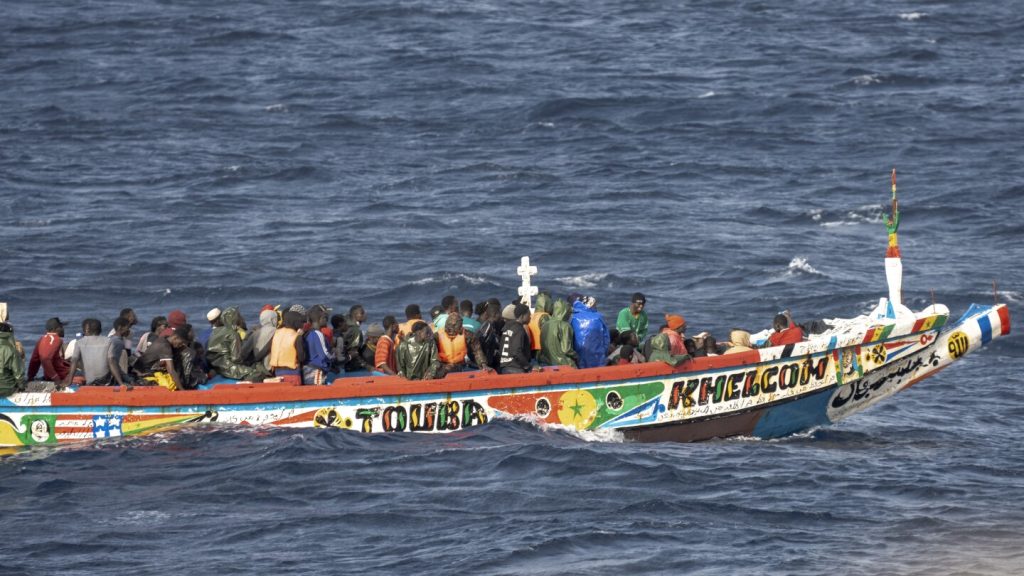A recent report released by a Spanish migration rights group, Caminando Fronteras, revealed that over 10,000 migrants died while attempting to reach Spain by sea this year. The report highlighted that an average of 30 migrants per day lost their lives in 2024 while trying to reach the country by boat, marking a 58% increase in overall deaths compared to the previous year. Most of these tragedies occurred along the so-called Atlantic route, a perilous journey from West Africa to the Canary Islands, a Spanish archipelago off the African coast increasingly used as a gateway to continental Europe. Among the 10,457 recorded deaths, there were 1,538 children and 421 women, with April and May being the deadliest months according to the report.
The organization also observed a significant surge in the number of boats departing from Mauritania in 2024, becoming the primary departure point for migrants embarking on the journey to the Canary Islands. In response to this escalating crisis, Spain pledged 210 million euros (approximately $218 million) in aid to Mauritania to combat human smugglers and prevent more boats from setting sail. Spain’s interior ministry reported that over 57,700 migrants reached the country by boat until mid-December 2024, representing a 12% increase from the same period in the previous year, with the vast majority of arrivals coming through the treacherous Atlantic route. The government’s efforts to address the migration issue, both through financial aid to countries of origin and increased monitoring of sea crossings, reflect the ongoing challenges and human tragedies associated with irregular migration to Europe.
The alarming death toll among migrants attempting to reach Spain underscores the urgent need for international cooperation and coordinated efforts to prevent further loss of life at sea. Caminando Fronteras’ report sheds light on the human cost of irregular migration and the risks that individuals, including women and children, face in search of better opportunities or refuge. The perilous journey across the Atlantic Ocean remains one of the deadliest routes for migrants seeking passage to Europe, with the Canary Islands acting as a precarious gateway to the continent. The spike in deaths recorded in 2024, particularly from West Africa to the Canary Islands, underscores the need for a comprehensive and humane approach to address the root causes of migration and provide safe and legal pathways for those in need.
As the death toll rises and more migrants risk their lives in search of a better future, Spain and other European countries must work together to tackle the underlying issues driving irregular migration and ensure the safety and protection of those making dangerous sea crossings. The increase in boats departing from Mauritania highlights the need for targeted interventions to combat human trafficking and improve border control measures in countries of origin and transit. Efforts to provide alternative pathways for legal migration and support economic development in source countries are crucial to addressing the root causes of migration and reducing reliance on perilous sea journeys. By investing in sustainable solutions and promoting international cooperation, governments can work towards a more humane and effective response to the global migration crisis.
In the face of mounting challenges and tragic loss of life, the international community must prioritize the protection of vulnerable migrants and the respect for their human rights. The continued collaboration between countries of origin, transit, and destination is essential to prevent further tragedies at sea and address the complex drivers of irregular migration. As the number of arrivals by boat increases, particularly through the Atlantic route, it is clear that a comprehensive and coordinated approach is needed to ensure the safety and well-being of all individuals on the move. By addressing the root causes of migration, enhancing legal pathways for mobility, and improving border management, countries can work towards a more sustainable and humane response to the ongoing migration crisis.


